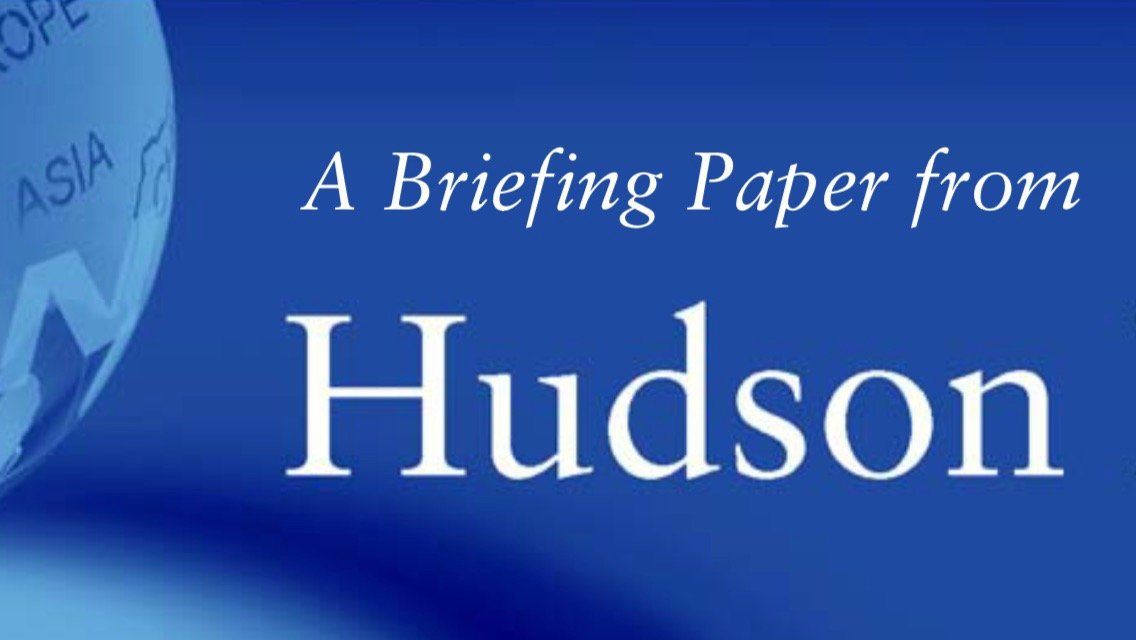Policymaking at the Edge of Chaos: Musings on Political Ideology Through the Lens of Complexity
Dr. Christopher Ford • January 20, 2011
A monograph struggling with what lessons one might learn from Complexity Science to help understand politics and ideology. It is also available here, from Hudson Institute.

Paper Presented to the Conference on
“Is Complexity the New Framework for the Study of Global Life?”
Sydney, Australia
(January 19-20, 2011)
Synopsis:
Though there seems little reason why it should not yield insights when applied to the complex adaptive systems of human society, the field of Complexity Theory presents special problems for anyone looking to it for lessons in the field of public policymaking. In particular, complex systems’ nonlinearity and sensitivity to initial conditions seems to have subversive implications for policymaking, inasmuch as the unpredictability that they imply undercuts the very possibility of purposive policymaking. Complexity presents a “policymaker’s paradox,” for even as is suggests that small policy inputs can sometimes have an enormous impact upon systemic outcomes, it also seems to teach that we cannot predict what results our policy choices are likely to have over time. When outcomes are radically resistant to prediction, they are also necessarily resistant to the sort of deliberate control that policymaking traditionally assumes it possible to assert.
After outlining this dilemma, this paper explores one possible, albeit only partial, response: an approach to policymaking that focuses with special emphasis upon shaping the conceptual frameworks that guide and channel human behavior within complex adaptive social systems. Experts continue to debate the degree to which Complexity insights from the hard sciences can translate into the social sciences. A focus upon the ideational constraints upon, and drivers for, unit-level operational behavior in a social system seems warranted, however, because humans’ susceptibility to tying behavior to such frameworks distinguishes them from unit-level elements of the complex systems investigated in other fields (e.g., chemistry, physics, computing, mathematics, or evolutionary biology). Accordingly, this paper suggests the possibility that policy interventions in the realm of ideas may have more potential to create transformative change than many other types of intervention. Such interventions are perhaps also able to produce change that is more “predictable” than Complexity would otherwise tend to suggest, inasmuch as conceptual “memetics” can create characteristic behavioral patterns over time as ideas propagate themselves in conceptual “families” and thus continue to shape actors’ choices in recognizable ways.
The paper explores this notion through the use of a case study: the evolution of the “separate development” ideology of racial apartheid in South Africa from the 1950s to the beginning of the 1990s. Outlining the origins of this system in a deliberate effort of ideological entrepreneurship by ideologists within that country’s then-ruling National Party, the paper then follows the evolution of separate development theory as it struggled with domestic and international contestation, internal contradictions and tensions, and competition from other ideological frameworks until its effective dissolution with the coming of universal franchise within a system of constitutional rights in the early 1990s. This paper uses examples from the history of South African separate development theory to illustrate Complexity Theory’s utility as a lens through which to examine political ideology, and to suggest – in light of the peculiar power ideas seem to have to shape behavior, for good or ill – the potential value of a more self-consciously ideational approach to public policy.

Below is the prepared text upon which Dr. Ford based his shorter oral remarks to the U.S-China Nuclear Workshop on November 19, 2025, convened by the Protect on Managing the Atom and the Council on Strategic Risks, held at the Belfer Center at Harvard University’s John F. Kennedy School of Government.








